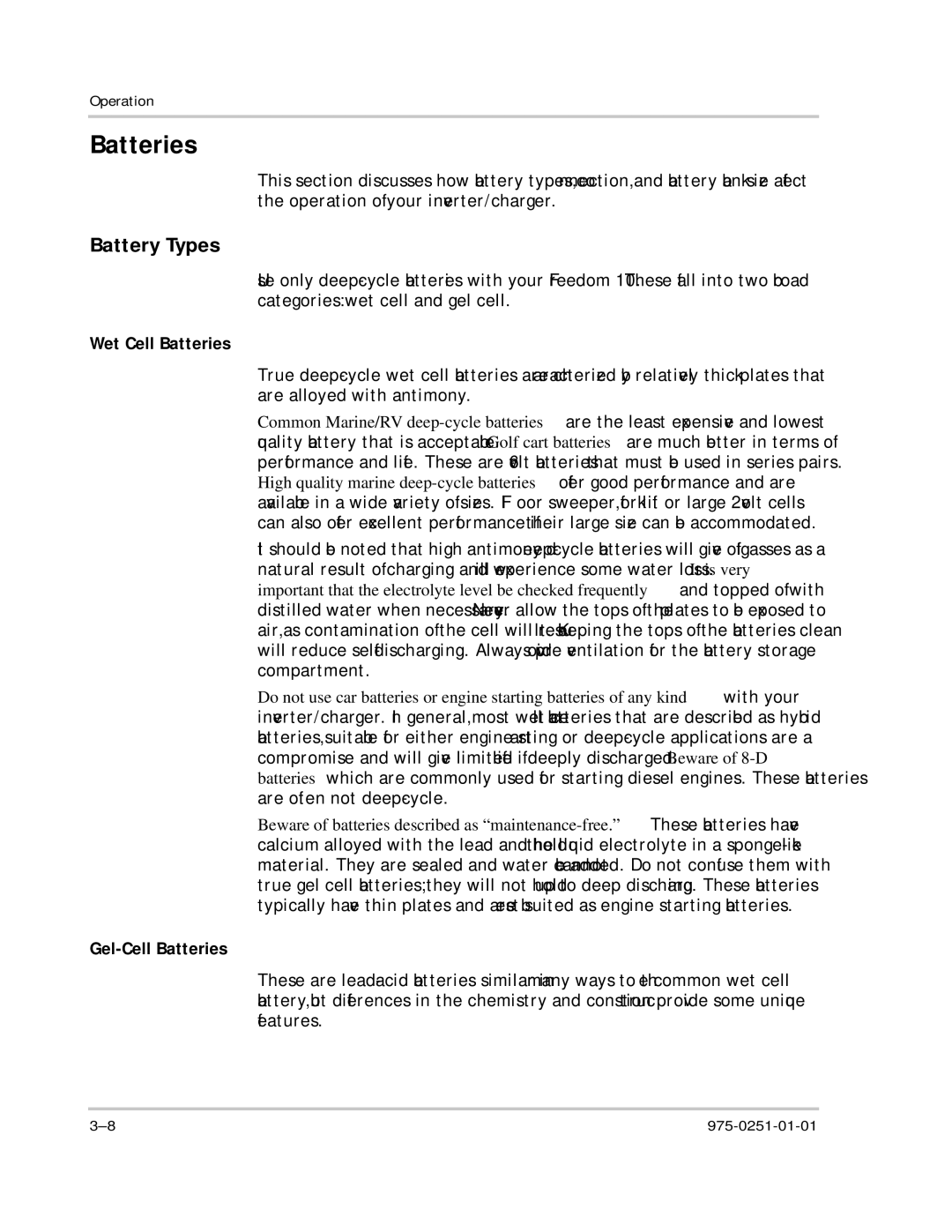Batteries
This section discusses how battery types, connection, and battery bank size affect the operation of your inverter/charger.
Battery Types
Use only deep-cycle batteries with your Freedom 10. These fall into two broad categories: wet cell and gel cell.
Wet Cell Batteries
True deep-cycle wet cell batteries are characterized by relatively thick plates that are alloyed with antimony.
Common Marine/RV deep-cycle batteries are the least expensive and lowest quality battery that is acceptable. Golf cart batteries are much better in terms of performance and life. These are 6-volt batteries that must be used in series pairs. High quality marine deep-cycle batteries offer good performance and are available in a wide variety of sizes. Floor sweeper, fork lift or large 2-volt cells can also offer excellent performance if their large size can be accommodated.
It should be noted that high antimony deep-cycle batteries will give off gasses as a natural result of charging and will experience some water loss. It is very important that the electrolyte level be checked frequently and topped off with distilled water when necessary. Never allow the tops of the plates to be exposed to air, as contamination of the cell will result. Keeping the tops of the batteries clean will reduce self-discharging. Always provide ventilation for the battery storage compartment.
Do not use car batteries or engine starting batteries of any kind with your inverter/charger. In general, most wet cell batteries that are described as hybrid batteries, suitable for either engine starting or deep-cycle applications are a compromise and will give limited life if deeply discharged. Beware of 8-D batteries which are commonly used for starting diesel engines. These batteries are often not deep-cycle.
Beware of batteries described as “maintenance-free.”These batteries have calcium alloyed with the lead and hold the liquid electrolyte in a sponge-like material. They are sealed and water cannot be added. Do not confuse them with true gel cell batteries; they will not hold up to deep discharging. These batteries typically have thin plates and are best suited as engine starting batteries.
Gel-Cell Batteries
These are lead-acid batteries similar in many ways to the common wet cell battery, but differences in the chemistry and construction provide some unique features.

